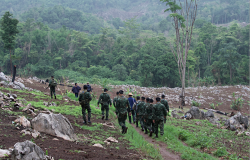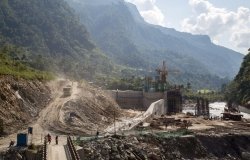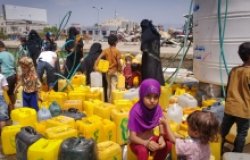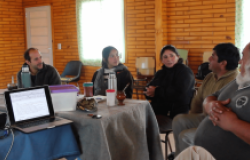Experts Call for More Nuanced Research on Environment, Population, and Security
MARCH 2006--Addressing Environmental Problems and Population Dynamics May Lower the Risk of Conflict, Some Tell ECSP Report 11
Some violent conflicts on today's front page have deep roots in long-term environmental problems and rapid population growth. But these roots are often overlooked in favor of more visible explanations. According to some experts, protecting natural resources and stabilizing population growth must be part of long-term solutions to these conflicts. Others say the evidence does not support this strategy. But all agree that more research will lead to a more nuanced understanding of the links connecting environment, population, and security. Bringing together a diverse group of authors—from Nepal to Norway, from the university to the military—the 11th edition of the Environmental Change and Security Program Report explores how powerful underlying forces may engender war—-or lay a foundation for peace.
In questions of war and peace, population dynamics are rarely considered. Little in-depth analysis counters the simplistic equations of conventional wisdom. To help traverse this minefield, five experts offer recommendations based on their new research:
The ECSP Report, the only forum dedicated to showcasing environmental security, also features these special reports:
To learn more about ECSP's current and upcoming projects, explore our ever-expanding website, where new features include video of many of our past meetings and a topical navigation tool, which sorts news, research, videos, and links according to your interests. Our redesigned monthly e-newsletter, ECSP News, delivers meeting summaries, program news, and event announcements straight to your inbox, as we continue to use new media to streamline our publications and improve our dissemination.
Related Links
Related Programs

Environmental Change and Security Program
The Environmental Change and Security Program (ECSP) explores the connections between environmental change, health, and population dynamics and their links to conflict, human insecurity, and foreign policy. Read more

Maternal Health Initiative
Life and health are the most basic human rights, yet disparities between and within countries continue to grow. No single solution or institution can address the variety of health concerns the world faces. By leveraging, building on, and coordinating the Wilson Center’s strong regional and cross-cutting programming, the Maternal Health Initiative (MHI) promotes dialogue and understanding among practitioners, scholars, community leaders, and policymakers. Read more










